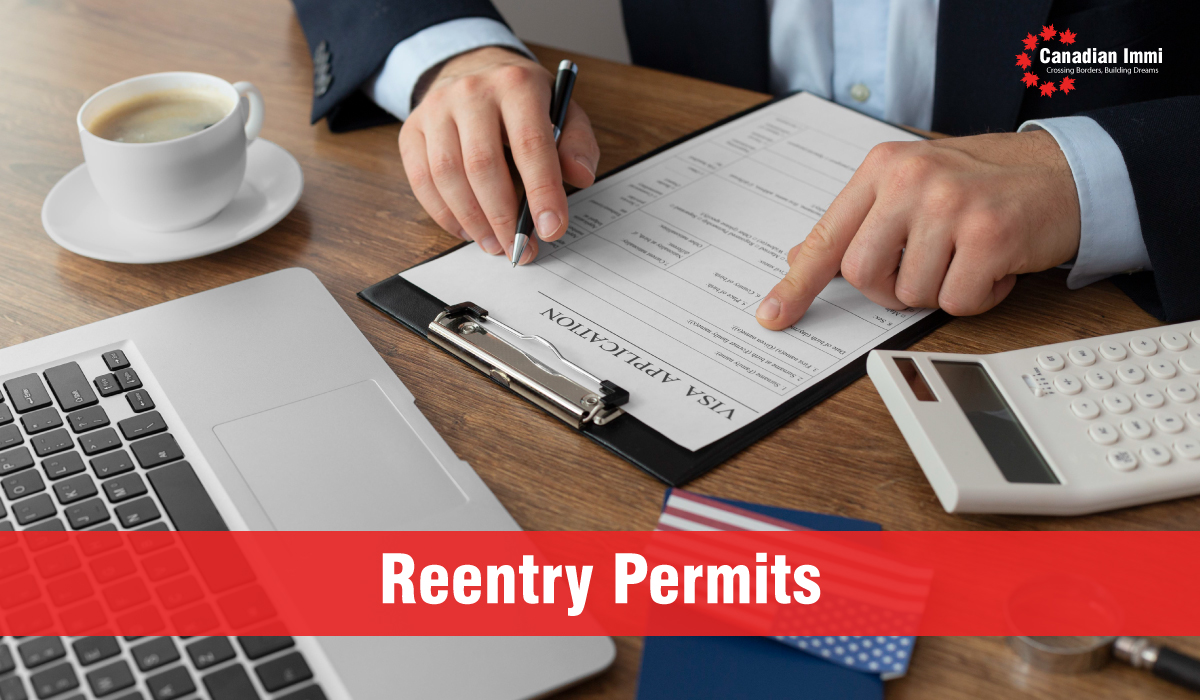Green card holders can travel to and from the United States more easily than other visa holders. However, extended travel abroad can cause immigration officers to doubt a permanent resident’s intent.
It’s best for green card holders to maintain a continuous residence and strong ties to America during long trips. This helps avoid the risk of losing status.
Reentry Permits
A reentry permit lets lawful permanent residents travel abroad for up to two years without risking their residency. In order to obtain a permit, green card holders must file an Application for Travel Document (Form I-131) while they are still in the United States. This form requires proof of identity, a valid passport, and a statement that they intend to return to the United States at the end of their trip.
Even though a reentry permit allows green card holders to stay away from the United States for up to two years, it is not a guarantee that they will be able to return to the country. In fact, it is not even a guarantee that they will be admitted into the country by CBP officers. The officers will look at their length of stay away from the United States, as well as other factors like ties to the United States such as home ownership, employment, and family connections.
One of the biggest reasons for leaving the United States is to attend school or work in another country. However, if you have a green card and travel for more than six months, this could make immigration officials think that you no longer live in the United States and have abandoned your residency. If this happens, your residency may be revoked.
The only way to avoid this is to plan your trips carefully and ensure that the purpose of your travels is temporary. Visiting family, going on vacation, or traveling for work are all acceptable purposes for temporary travels. You must also continue to demonstrate strong ties to the United States through things like paying taxes, maintaining a U.S. bank account, and maintaining a driver’s license or state ID.
It is important to know how long you can safely leave the United States because it will affect your ability to gain citizenship and your future plans to apply for a job or open a business. If you do have a permanent resident card and will be gone for more than a year, consider working with an experienced attorney to obtain a reentry permit before your trip.

Abandonment
Abandonment is when a person intentionally or knowingly relinquishes their lawful permanent resident status and ceases to reside in the United States. In some cases, this can result in deportation. In other situations, such as if a spouse abandons the child of his or her husband or wife, this is considered a criminal matter and may lead to a prison sentence.
The primary way that a green card holder can lose his or her status is by abandonment. However, many people unintentionally lose their status when traveling outside the country for extended periods of time. This happens when trips are not clearly temporary in nature and when the duration of an absence exceeds a year.
A person can also lose his or her green card by filing an I-407 Record of Abandonment with USCIS. This form is typically filed when a green card holder abandons residency because the reason for the long period of time away from the United States is not legitimate or because the individual has not maintained all of the documents that support his or her residence in the United States.
These documents can include things like a driver’s license, property ownership, U.S. bank accounts, professional memberships and clubs, tax returns filed identifying income as a resident alien, and more. A lawyer can help a person determine whether they have enough ties to the United States to maintain their residency when traveling abroad and prepare the necessary evidence in case they are challenged at an airport by CBP officers.
There are many legitimate reasons that a green card holder might need to travel for extended periods of time, such as taking a job overseas, caring for an ill family member or visiting relatives in another country. But, a CBP officer can challenge a green card holder at the airport to establish that his or her trip was for a temporary purpose and that it is reasonable to return to the United States in the future.
This is why it is important for a green card holder to carefully weigh the benefits of traveling abroad against the risk of losing his or her status. Ideally, a green card holder should make sure to live in the United States as much as possible and only travel abroad for a short time when needed.
Temporary Resident Permits
When a green card holder goes abroad, it is important to have the proper documentation with you. This is especially true if the trip will last more than a year. If a green card holder goes too long without returning, he or she runs the risk of losing residency status and possibly deportation. The best way to avoid this is to apply for a reentry permit before departing. This will allow the holder to return to the United States at any time during the permit’s two-year duration. However, it is still important to have other documentation with you that shows your intention to remain in the United States.
It is also a good idea for green card holders to obtain other evidence of their residence in the United States, such as a bank account or property ownership. This can help them demonstrate to a CBP officer that they intend to live in the United States permanently. This is helpful because if the officer believes you are leaving because of a lack of intent to stay, he or she may find reason to suspect abandonment and deny your reentry into the country.
Green card holders may go abroad for a variety of reasons, including to travel or work abroad, care for ill family members or liquidate assets in the United States. However, these trips should be limited to six months or less in order to minimize the possibility of an officer finding abandonment grounds.
If you are planning a trip that will exceed a year, it is highly recommended to speak with an experienced immigration attorney about the situation before departing. It is possible to return to the United States after more than a year, but the process can be much more difficult than it would otherwise be.
If you have gone longer than a year without returning, the CBP officer at the port of entry will likely find that you abandoned your permanent resident status. At that point, you will need to either apply at a U.S. consulate abroad for an SB-1 visa as a returning resident and convince the consular officer that your time outside the United States was temporary and beyond your control or file for a waiver of the one-year requirement with USCIS.
Visas
For green card holders, freedom to travel outside of the United States comes with a set of stipulations that must be followed in order to preserve permanent resident status. Green cards are not valid for travel outside of the country indefinitely, and extended trips can raise suspicions at the border that a lawful permanent resident (LPR) has abandoned their residence status and may be seeking citizenship elsewhere. The rules on how long you can stay away from the US with a green card are complex, and they vary depending on the individual’s situation and whether or not they have a reentry permit or other proof of U.S. ties.
Most LPRs can legally remain outside of the United States for six months or less without risking their residence status. However, if the trip will exceed a year, the LPR must obtain a reentry permit before departing for travel to avoid risking their status. This permit demonstrates to U.S. Customs and Border Protection (CBP) officers that the green card holder still sees the United States as their home and intends to maintain their residency here, even after a prolonged trip abroad.
In addition to obtaining a reentry permit for trips exceeding one year, permanent residents should make sure to file tax returns as a resident of the United States and keep other evidence of their ties to this country during extended trips abroad. This includes keeping bank accounts, credit cards, a vehicle registered in the United States, and other assets that demonstrate to CBP officers that a green card holder still considers the United States their primary residence.
If you are worried about your ability to travel abroad with a green card, consult with an immigration attorney who can analyze your situation and recommend ways to strengthen your ties to the United States. A lawyer can also help you plan your trips to ensure that you do not violate any laws regarding green card abandonment, or reset your naturalization waiting periods by overstaying your welcome in the land of the free. If you are concerned that your extended travels are raising flags with a CBP officer, keep proof like a letter from your employer that explains the nature of your work abroad and that it will have a temporary purpose.


